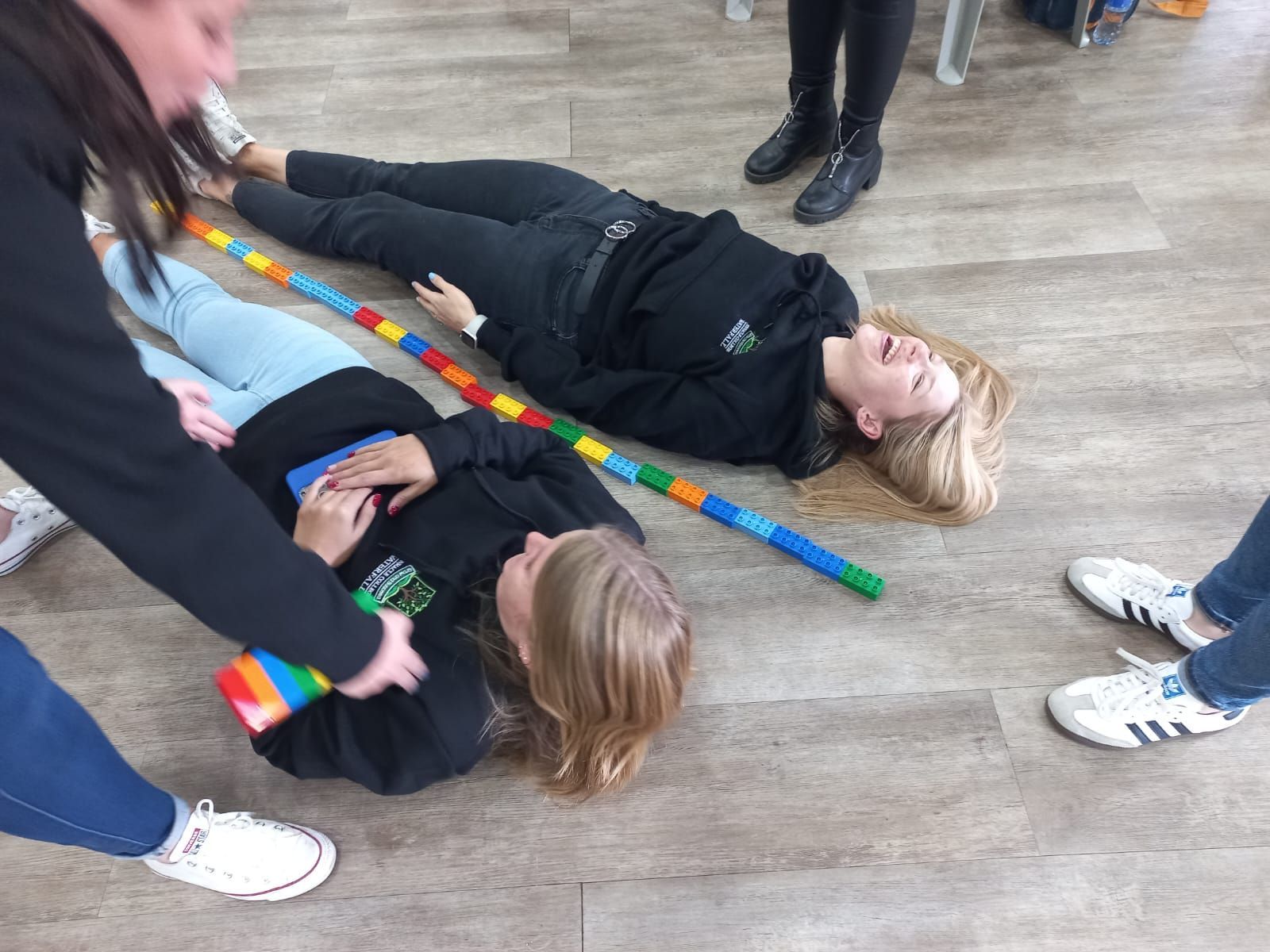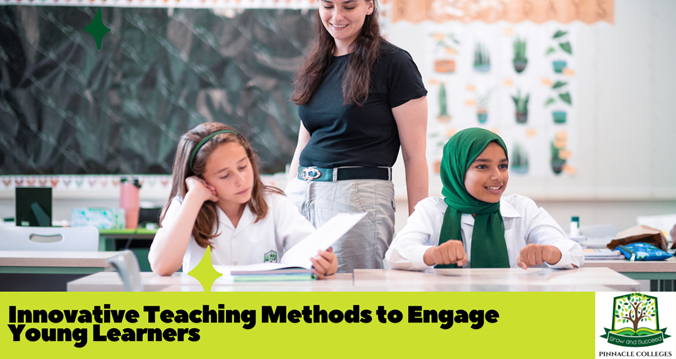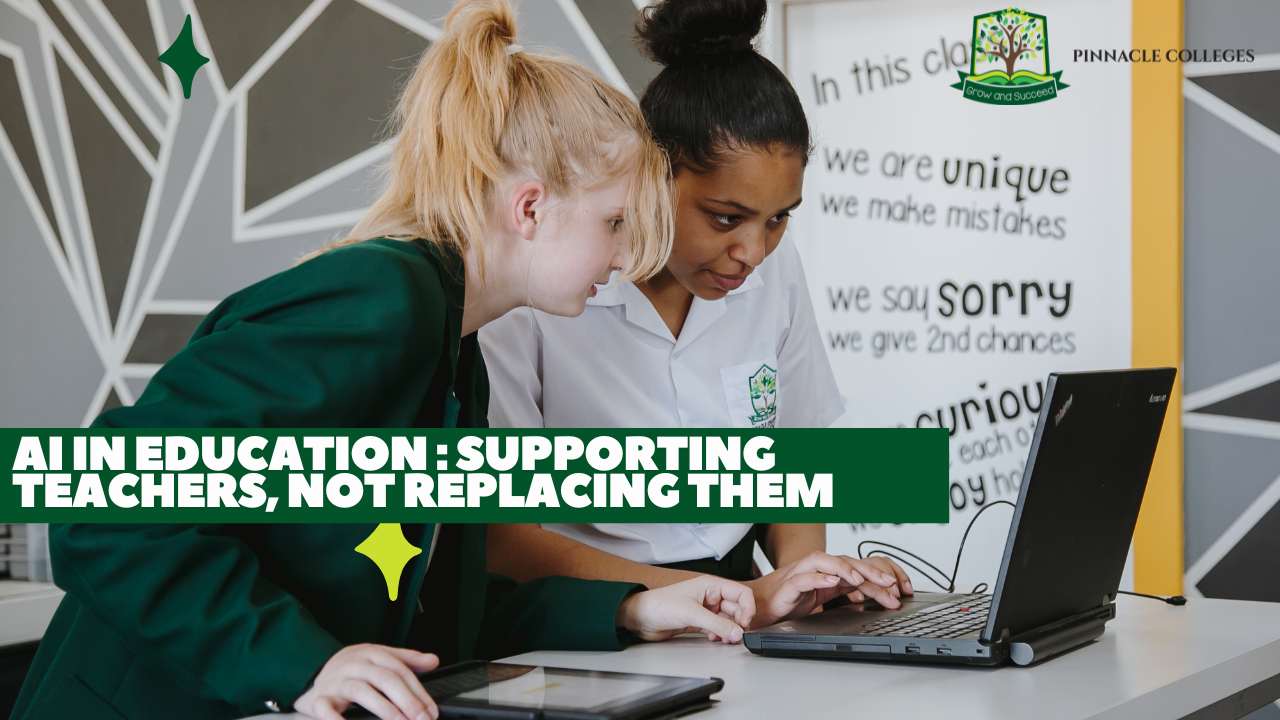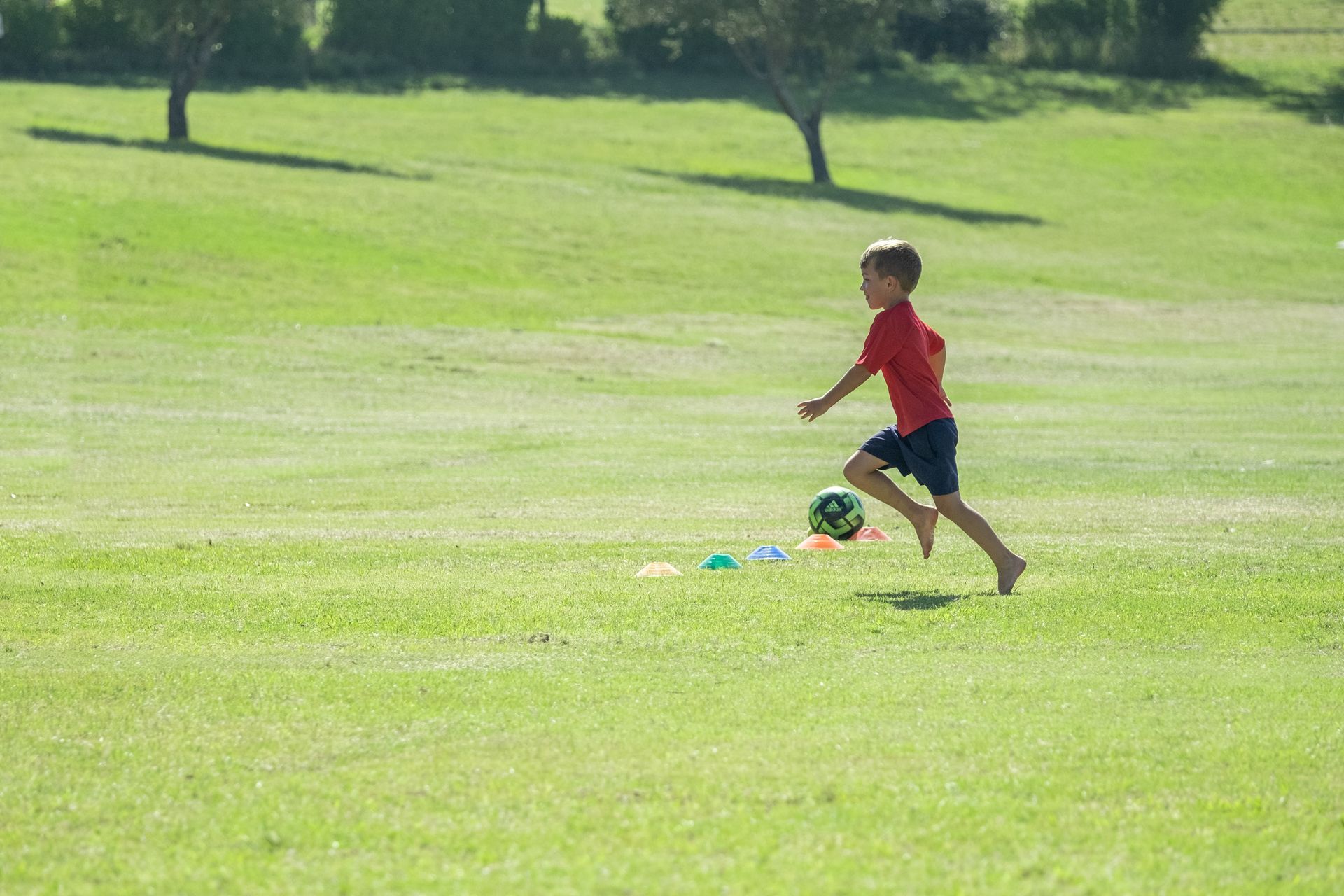LOCKDOWN LEARNING: HOW TO MAINTAIN A POSITIVE ENVIRONMENT AT HOME
Drickus Maartens • May 8, 2020
South African families are going through tremendously challenging times as most continue to stay at home during the country’s extended lockdown. While it is not yet clear when schools will start to re-open, thousands upon thousands of learners are working hard to stay on top of their educational journeys, while those parents who can do so are still working from home. External pressures combined with fear and anxiety about the future are taking their toll on parents who are, at the same, tasked with ensuring their children don’t fall behind. These, and other factors, are exacting an undeniable emotional toll in homes during this time, an educational expert says.
“The current situation facing those parents who are trying to do their best on the work front to ensure the sustainability of their companies and their livelihoods, while having to oversee their children’s schoolwork is without a doubt extremely stressful, and it is important to take a step back and gain perspective at this time,” says John Luis, Head of Academics at ADvTECH Schools.
“It is no easy task to keep children productive and learning at home, while also trying to get your own work done under trying circumstances. But we urge those parents who are ready to throw in the towel, and who quite simply have had enough, to aim to regain a sense of equilibrium and a positive environment even if it seems impossible right now,” he says.
Luis says that ADvTECH, in its preparation ahead of lockdown, introduced Pastoral Care Teams at all their schools in recognition of the fact that the current situation would come to pass.
“From the start, we were ready and committed to continuing our teaching and learning through our online and distance offering, and recognised that parents and family members would need to support, guide and monitor the learning taking place at home.
“But addressing the continuation of the curriculum was only one part of the story. We realised very early that this was going to be an unsettling and uncertain time for everyone concerned, and that we also had to support our parents and learners in the challenges and demands that would accompany this time in addition to the learning aspects.
“So we put in place Pastoral Care Teams at each school to help learners, staff and parents maintain a sense of community by maintaining regular contact, and to ensure that we are firstly aware of, and then able to help them address issues arising during this time. Many of these issues, as flagged by our partner schools abroad who went through lockdown for up to nine weeks before South Africa did, are now being realised in homes across the country.”
Luis says despite the fact that public and private schools are all planning and preparing for the return to physical sites, the approach will be phased, which means that many learners outside of the designated first returning grades will still be learning from home for several weeks and even months.
“It is very important that the educational journey continues for these learners so that they do not fall behind their peers. But at the same time, the situation needs to be managed in a way that no harm is done do the relationships within the family, as a result of this pressure to continue.”
So parents should aim to re-establish a productive yet calm environment even in the face of the challenges of this time, he says.
“One way in which this can be achieved, is by creating a schedule which allows for both family connection and deep focus time. We as parents must set the example by demonstrating that while things are different, we can build our resilience muscles.
“In the mornings, before children start their work and parents dive into their to-do lists, make the time to connect – read your children a book, get some fresh air, and just be. When the work starts, be realistic. Don’t try to make your average 9-to-5 happen. Structure the day to allow for work-immersion slots, and during this time don’t feel guilty for not engaging directly with your children. Too much screen time is still not advisable, but if it allows the children to decompress while you can apply intense focus to your own work, it will do more good than harm.”
Parents should also dedicate some time to being able to assist their children – and must ensure that they can focus on their child’s needs and learning during this time - without running over their own pending work repeatedly in their minds.
“Try to banish your own concerns during this time, and give your child your full attention. It may only be half an hour, but make that half an hour count in terms of connection,” he says.
Finally, everyone should have some downtime together during the day, potentially around lunchtime, he says.
“Build up your reserves for the afternoon shift by going offline, taking a tea break, hanging up the washing, and so forth. It is important for parents during this time to look after our own wellbeing and state of mind by actively managing these factors, and not allowing our fears and anxieties to rule our entire days or our interactions with our families. By realising the need for, and then ensuring we maintain positive space and connection despite challenging times, we will be better positioned to continue our lives post-lockdown without having to start rebuilding our personal relationships as well.”
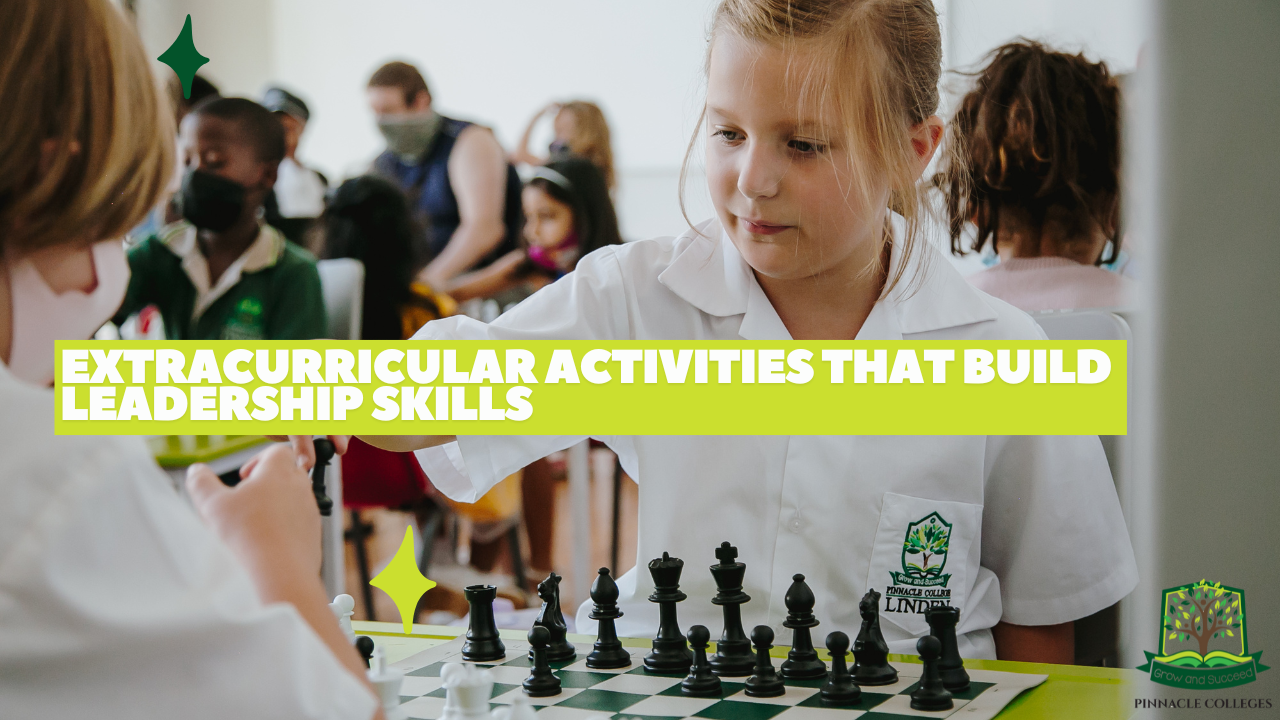
At Pinnacle Colleges, we believe that education goes beyond the classroom. As part of our commitment to nurturing well-rounded individuals, we offer a variety of extracurricular opportunities designed to develop essential leadership skills in our students. Why Leadership Matters Leadership is more than just a title—it's about initiative, responsibility, and the ability to inspire others. These qualities are vital for academic success and for thriving in life beyond school. At Pinnacle Colleges, we empower students to become confident, capable leaders through hands-on experiences and values-based education. Leadership Programs and Student Government Our schools offer structured leadership programs and student government bodies where learners can take on real responsibilities. Whether it’s organizing school events, leading assemblies, or representing their peers, students develop communication, decision-making, and teamwork skills that will serve them for years to come. Sports: Building Teamwork and Resilience Participation in sports is a cornerstone of the Pinnacle Colleges experience. Our students learn the importance of discipline, collaboration, and perseverance—key aspects of effective leadership. Whether on the soccer field, netball court, or athletics track, learners are encouraged to set goals, support their teammates, and lead by example. Cultural and Club Activities From debate clubs to arts and music, our cultural programs encourage creative thinking and problem-solving. Students have the chance to organize performances, participate in competitions, and work together on projects, all of which foster leadership and initiative in a supportive environment. Community Service: Leading with Heart At Pinnacle Colleges, we believe in the power of giving back. Our community service initiatives allow students to engage with and make a difference in their communities. Through volunteering and outreach projects, learners develop empathy, social awareness, and the confidence to lead positive change. A Holistic Approach to Leadership As part of the ADvTECH Group, Pinnacle Colleges is committed to holistic education. We balance academic excellence with a strong focus on personal growth, ensuring that every student is equipped with the knowledge, skills, and values needed to succeed. Our approach to extracurricular activities reflects this philosophy—preparing students not just for exams, but for life. Ready to discover your leadership potential? Explore the wide range of extracurricular opportunities at Pinnacle Colleges and become the leader you are meant to be!

OCTOBER 2024 In South Africa, the ability to read for meaning is a critical skill that remains elusive for many children. According to the Reading Panel 2030 report, a staggering 78% of Grade 4 learners cannot read for meaning in any language. This alarming statistic underscores the urgent need to foster a love of reading among students to ensure their academic success and personal development. “Reading is foundational to learning and personal growth. It enhances vocabulary, improves comprehension, and stimulates imagination. Moreover, reading is linked to better academic performance across all subjects. For South Africa, where educational disparities are significant, promoting reading can be a powerful tool to bridge the gap and empower future generations,” says Kassandra Strydom, Academic Advisor: Foundation Phase at ADvTECH , Africa’s leading private education provider. Strydom emphasises that in a world dominated by social media and mobile devices, keeping a child's interest in reading can be challenging. However, she underscores that this is a vital responsibility for parents. “By integrating reading into daily life from a young age, and making it an enjoyable activity, parents can help their children develop a lifelong love for reading, thereby improving their prospects of personal and academic achievement,” she says. Strydom notes that the findings of the Reading Panel 2030 report highlight the critical need for efforts to ensure that all children in South Africa can read for meaning by 2030. And while the Department of Education committed to addressing challenges identified in the report at a recent session where Basic Education Minister Siviwe Gwarube delivered the keynote address, the mammoth task could not be left to educators alone, she said. “Schools and teachers play an important role in teaching students how to read, but few are equipped to instil a genuine love for reading by the time children begin formal education. This essential passion must be nurtured at home to create a supportive environment where students can thrive once they master their ABCs.” Strydom says parents play a pivotal role in nurturing a child’s love for reading, and says it can be done by: CREATING A READING-FRIENDLY ENVIRONMENT & LEADING BY EXAMPLE Second-hand books are often very affordable, and libraries are free, making it easy for families to fill their homes with a diverse selection that caters to their child's interests and reading level. Choosing books together can be a fun and exciting activity, providing valuable parent-child bonding time. Once the books have been selected, engaging in paired or shared reading experiences can enhance this connection. Creating opportunities to read together in a relaxed and intimate setting—whether snuggled on the couch or curled up in bed—makes reading feel special. This not only fosters a love for reading but also connects the activity to positive emotions and quality time spent together. By modelling positive reading habits and setting aside dedicated reading time each day, parents can help cultivate a lifelong passion for books in their children. USING TECHNOLOGY WISELY Excessive screen time can negatively impact children’s development, prompting many schools to limit mobile phone usage to create more focused learning environments. To balance screen time at home, families can implement "reading timeouts" that benefit both child and parent. While there are numerous reading apps and platforms that can make reading engaging, it’s important to choose those that offer personal learning pathways, allowing children to explore content beyond just reading. These apps can foster deeper engagement with reading material by connecting it to real-world situations and encouraging critical thinking. However, it’s essential to also incorporate non-screen reading to ensure children develop a well-rounded love for literature alongside their digital experiences. MAKING READING AN INTERACTIVE EXPERIENCE When fostering a love for reading, it's important to ensure that the experience is interactive. Encourage children to engage with books before diving into the text by taking time for ‘picture walks’, where they can flip through pages and explore the illustrations. This approach helps minimise distractions and prepares them for a more focused reading experience. Consider using the "5 W" principle—asking who, what, when, where, and why questions about the book—to spark discussion and curiosity. Before reading, ask children what they think the story might be about, and always include the follow-up question, "How do you know that?" This encourages them to articulate their thoughts and develops metacognition—thinking about their thinking—making the reading experience richer and more meaningful. ENDS


